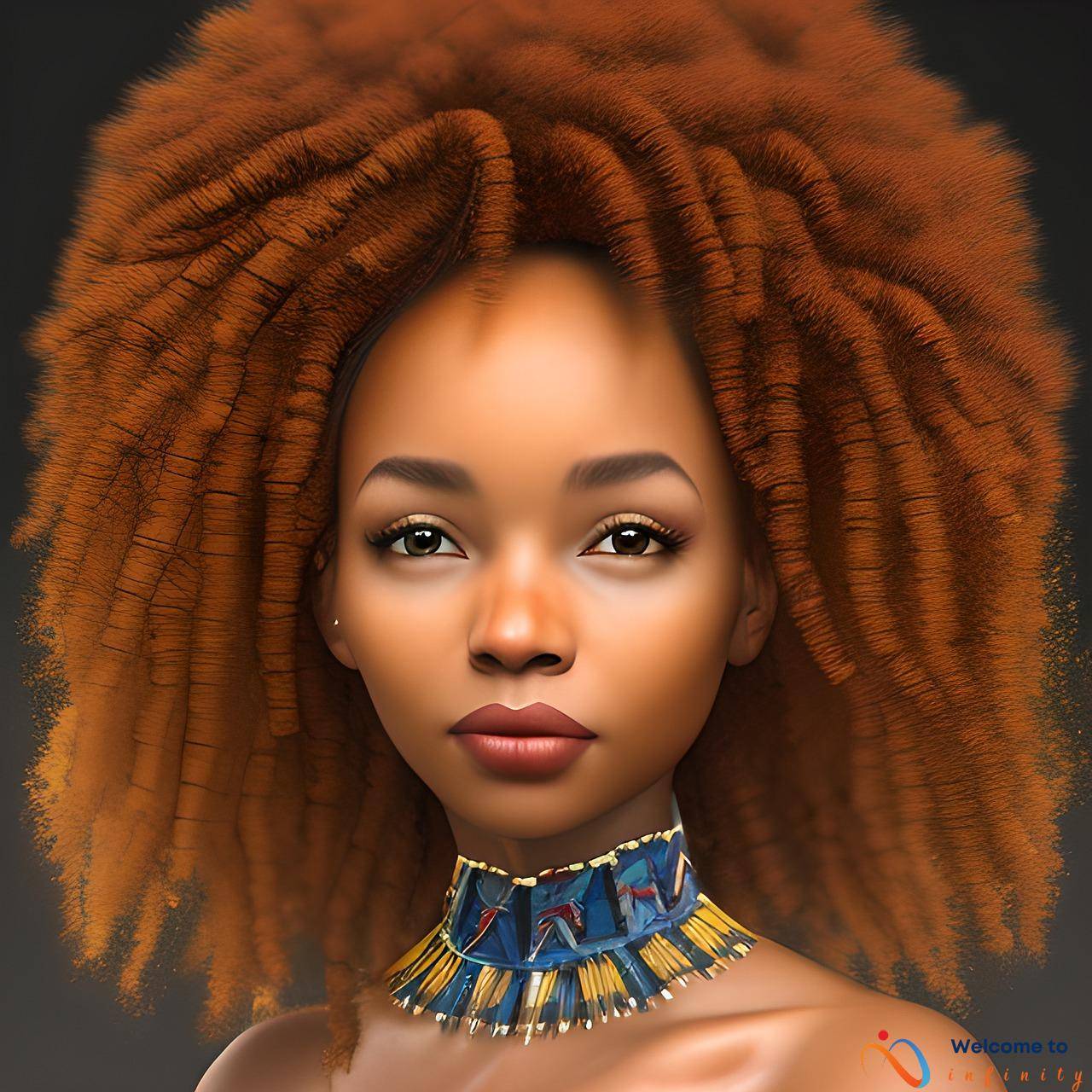Cultural diplomacy has emerged as an essential component of international relations. Countries around the world are beginning to recognize the importance of cultural exchange as a tool that can help establish mutual understanding and build bridges between nations. Rather than solely using traditional diplomatic channels, countries are turning to cultural exchange to emphasize the benefits of shared culture and the arts in creating stronger bonds among nations.
Through cultural exchange, people learn about different cultures, engage in new experiences, and come to understand and respect each other's customs and traditions. Exchange programs are one example of cultural diplomacy in action. These programs provide opportunities for individuals to study in different countries, learn about new cultures, and develop skills and knowledge of different languages.
Cultural festivals and exhibitions are other examples of cultural diplomacy. These events offer opportunities for people from different countries to come together and share their cultural traditions, creating a space for cross-cultural dialogue that strengthens connections between people and promotes mutual respect. They also provide platforms for the exchange of ideas, creativity, and innovation, encouraging the spread of knowledge and the sharing of new developments in various fields across borders.
Ultimately, cultural diplomacy helps to build relationships between nations, strengthen mutual values, and promote peaceful coexistence. Through cultural exchange, countries can foster understanding and respect between peoples as they work to build bridges of cooperation that transcend geopolitical boundaries.
The Importance of Cultural Diplomacy
Cultural diplomacy refers to the practice of using cultural exchange as a means to establish and maintain good relationships between countries. It has become a crucial aspect of modern diplomacy as it has the potential to bring people from different cultures and backgrounds together. The exchange of ideas, art, and culture between nations is an effective way to promote understanding, peace, and cooperation.
With the increasing globalization of the world, the importance of cultural diplomacy has never been more important. In a world where people and nations are increasingly interconnected, it is essential to have a means of building bridges and fostering relationships between them. Cultural diplomacy is one way to accomplish this.
Exchange programs, cultural festivals, and exhibitions are some of the most effective examples of cultural diplomacy. These activities enable individuals from different countries and cultures to learn about each other's ways of life. Exchange programs, for example, enable students and young scholars to study and work with professionals in different cultures. This not only allows them to learn new skills but also exposes them to a different way of life and way of thinking.
Cultural festivals, such as music festivals or film festivals, are another example of cultural diplomacy. These festivals offer an opportunity for people from different countries and cultures to come together and share their love for music or film. They offer a chance to learn about different cultures and to appreciate their differences.
Finally, exhibitions that showcase the creativity and innovative thinking of other cultures are another form of cultural diplomacy. These exhibitions inspire creativity and innovation in others and promote learning across borders.
In summary, cultural diplomacy is a powerful tool that can be used to build bridges between nations. By promoting understanding, peace, and cooperation between people from different cultures, cultural diplomacy has the potential to keep the world connected and moving forward.
Examples of Cultural Diplomacy
Cultural diplomacy is the exchange of ideas, values, traditions, and other aspects of culture between different nations. Here are some examples of cultural diplomacy initiatives:
Institutional and academic exchange programs facilitate the exchange of students, teachers, researchers, and professionals among nations. These programs enable individuals to learn about different cultures and to appreciate their differences. The Fulbright program, which offers scholarships for international education and cultural exchange, is one such program that promotes cultural diplomacy between the United States and other countries.
Cultural festivals allow people from different countries to come together and share their cultural heritage. The Cannes Film Festival, for example, attracts filmmakers, actors, writers, and film enthusiasts from around the world to share their works and ideas. The Glastonbury Festival of Contemporary Performing Arts in the United Kingdom is another example of a cultural festival that promotes cultural exchange through music, theater, comedy, and other forms of art.
Exhibitions that showcase the outstanding creativity and innovative thinking of other cultures can inspire creativity and innovation in others. The Venice Biennale, for example, is a prestigious exhibition of contemporary art that brings together artists, curators, and critics from around the world to exchange ideas and showcase their work. The World Expo, which has been held since 1851, is another international event that promotes cultural diplomacy by showcasing the latest innovations, technologies, and cultural practices from different countries.
These examples demonstrate the power of cultural exchange to foster mutual understanding and respect among different nations. By promoting cultural diplomacy, nations can build bridges and strengthen ties that transcend political and economic interests.
Exchange Programs
Exchange programs are an essential aspect of cultural diplomacy, as they provide young scholars and students with opportunities to study and work with professionals in different cultures. These programs offer an unparalleled chance to gain international experience while learning about different cultures and ways of life.
Exchange programs are not just limited to academic institutions; they also extend to arts, sciences, and business sectors. For instance, a budding artist can go to a foreign country to learn a new form of art, while a scientist can collaborate with colleagues in a foreign country to work on scientific research. Exchange programs allow young people to develop their skills and broaden their experience in ways that they could not achieve otherwise.
These programs offer an opportunity to learn about new cultures on a personal level, as individuals have the chance to interact with the locals and immerse themselves in the way of life. This permits students to expand their knowledge and perspectives about the world and its people.
- Exchange programs encourage mutual understanding and respect between different cultures.
- They provide students with opportunities to learn and experience new cultures.
- Exchange programs offer an opportunity for academic and professional growth.
- They build relationships and networks between students and professionals from different cultures.
In conclusion, exchange programs are an excellent way to encourage cultural diplomacy. They promote mutual understanding, academic growth, and build relationships between individuals from different cultures. It is crucial to keep supporting and promoting exchange programs to build bridges between nations and bring awareness to the importance of cultural diplomacy.
Cultural Festivals
Cultural festivals have always been a vibrant part of cultural diplomacy. They provide an opportunity for artists and creative professionals from different countries to interact, collaborate, and present their works to a wider audience. Film festivals, for instance, offer a platform for filmmakers from different countries to showcase their films, share their perspectives, and spark conversations about important issues. Music festivals, on the other hand, provide a unique opportunity for musicians and music lovers to experience diverse musical styles, interact with artists, and connect across cultures.
One of the most famous cultural festivals in the world is the Cannes Film Festival, which takes place in France every year. The festival attracts filmmakers, actors, producers, and industry professionals from all over the world. Apart from showcasing films, Cannes also hosts seminars, workshops, and networking events, which provide a platform for exchange of ideas and foster collaboration between people from different cultures.
Another example of a significant cultural festival is the Edinburgh International Festival, which is held every year in Scotland. The festival features theatre, music, dance, and visual arts performances from artists and groups from around the world. The festival has become a celebration of cultural diversity, with artists coming from as far as South Africa and Japan to showcase their work and interact with audiences.
- Cultural festivals are a celebration of diversity, inclusivity, and creativity.
- Cultural festivals provide a platform for artists, creative professionals, and enthusiasts to interact, collaborate, and exchange ideas.
- Cultural festivals encourage cultural diplomacy by breaking down stereotypes, promoting mutual respect, and fostering understanding.
Overall, cultural festivals are an excellent way to promote cultural diplomacy. As global citizens, it is crucial to experience and learn from different cultures, appreciate their traditions, and understand their perspectives. Cultural festivals offer a glimpse into diverse cultural heritages, which can be a source of inspiration and learning for all of us.
Exhibitions
Exhibitions have long been used as a platform for cultural diplomacy, and for good reason. Exhibitions enable visitors to learn about different cultures and the unique perspectives they bring. They showcase the diverse talents and creativity of other cultures, inspiring creativity and innovation in others.
Exhibitions have taken on many forms, ranging from traditional art exhibitions to modern technology shows. They bring people together in a shared exploration of ideas and traditions that are unfamiliar to them. In addition to showcasing different cultural perspectives, they also create opportunities for visitors to engage in dialogue with those from other cultures, promoting mutual understanding and respect.
One of the best examples of how exhibitions can inspire creativity and innovation is the World Expo held every five years. The World Expo offers nations the opportunity to showcase their latest technological innovations and creative solutions to global challenges, promoting cooperation and development. The 2020 World Expo, originally scheduled to take place in Dubai, has been postponed until 2021 due to the COVID-19 pandemic.
The power of exhibitions to inspire creativity and innovation is not confined to large, international events. Local exhibitions can have a similarly profound impact, shining a light on local traditions and cultures that are vital to the fabric of a community. They can also foster cross-cultural dialogue and understanding, building bridges between communities and nations alike.
In summary, exhibitions are an excellent tool for cultural diplomacy, promoting mutual understanding and respect while inspiring creativity and innovation. They offer visitors a window into unfamiliar cultures and traditions, facilitating cross-cultural dialogue and shared exploration of ideas and solutions to global challenges. Cultural diplomacy through exhibitions has the potential to break down stereotypes and promote greater global cooperation and development.
Benefits of Cultural Diplomacy
Cultural diplomacy enables individuals to appreciate and understand different cultures, leading to the breaking down of stereotypes and promoting mutual respect. The exchange of cultural ideas and practices also has the power to stimulate creativity, as individuals are exposed to alternative views and methods to approach challenges.
Cultural diplomacy also encourages learning, as individuals are exposed to new ways of thinking and understanding different perspectives. This can lead to personal growth, as individuals become more well-rounded and informed members of society.
Strengthening relationships is another benefit of cultural diplomacy. As individuals learn about and appreciate other cultures, they can form connections and bonds with people from different backgrounds. Such relationships can lead to new collaborations, partnerships, and friendships, contributing to a more harmonious and interconnected world.
- Cultural diplomacy promotes mutual respect and mutual understanding.
- The exchange of cultural ideas and practices stimulates creativity.
- Cultural diplomacy encourages learning and personal growth.
- Strengthening relationships is another benefit of cultural diplomacy.
By fostering a climate of cultural understanding and cooperation, cultural diplomacy can be an important tool in building a more peaceful and interconnected world. It enables individuals from different cultures to come together, building bridges of communication and understanding between nations.
The future of Cultural Diplomacy
With globalization rapidly increasing, the need for cultural diplomacy has become more crucial than ever before. As we move towards a more interconnected world, cultural diplomacy can help to bring to light global issues and create networks of people and organizations committed to addressing them. Cultural diplomacy has already shown itself to be an effective tool in bringing people and nations together, fostering mutual respect and understanding between different cultures around the world.
Advances in technology have made it easier than ever for people to connect with one another, across vast distances and cultural differences. With this connectivity, the importance of cultural diplomacy has only grown. Through the power of cultural exchange, individuals from different communities are able to come together, share ideas, and learn about each other's lifestyles and beliefs. This kind of engagement can create channels for dialogue and cooperation, helping to build bridges between nations and foster peace and understanding.
As our world becomes more complex and interconnected, it is increasingly important for us to look outwards and engage with the broader global community. Cultural diplomacy can play a critical role in this process, helping us to better understand the challenges facing the world and work together to address them. By promoting mutual respect, tolerance, and appreciation for different cultures, we can build stronger, more resilient societies that are better able to meet the needs of all members of our global community.
In conclusion, the future of cultural diplomacy is bright, offering great potential for building bridges and promoting cooperation between nations. Through its power to foster mutual understanding and respect, cultural diplomacy can help to create networks of committed individuals and organizations alike, dedicated to addressing the many challenges facing our world today.










